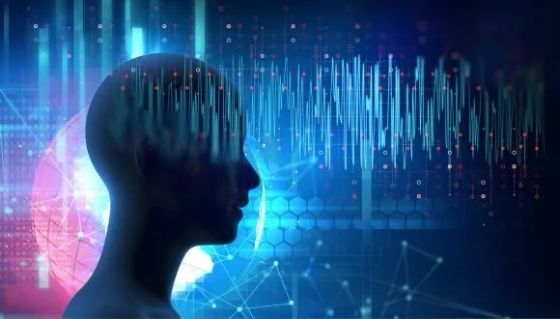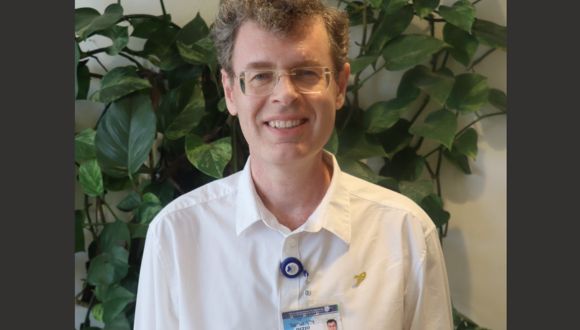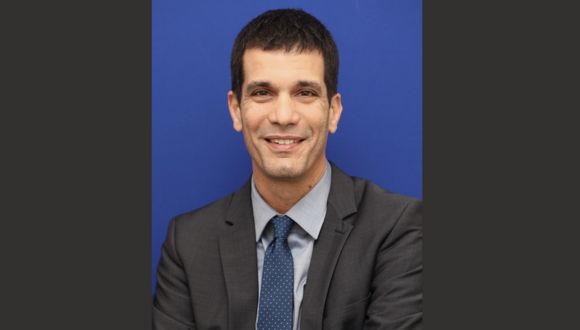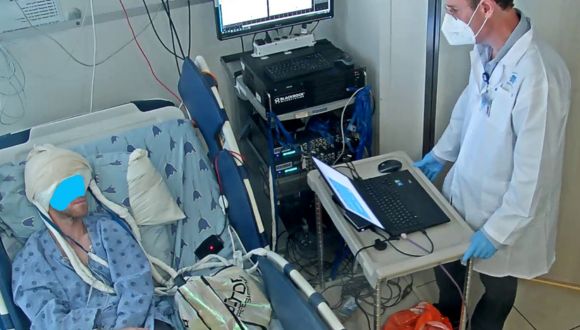
How Close Are We to Thought-Based Communication?
Researchers achieve success in allowing a patient to “speak” using only the power of thought
A scientific breakthrough by researchers from Tel Aviv University and Tel Aviv Sourasky Medical Center (Ichilov Hospital) has demonstrated the potential for speech by a silent person using the power of thought only. In an experiment, a silent participant imagined saying one of two syllables. Depth electrodes implanted in his brain transmitted the electrical signals to a computer, which then vocalized the syllables.
The study was led by Dr. Ariel Tankus of Tel Aviv University’s School of Medical and Health Sciences and Tel Aviv Sourasky Medical Center (Ichilov Hospital), along with Dr. Ido Strauss of Tel Aviv University’s School of Medical and Health Sciences and director of the Functional Neurosurgery Unit at Ichilov Hospital. The results of this groundbreaking study were published in the prestigious journal Neurosurgery, the official publication of the Congress of Neurological Surgeons. These findings offer hope for enabling people who are completely paralyzed — due to conditions such as ALS, brainstem stroke, or brain injury — to regain the ability to speak voluntarily.

Dr. Ariel Tankus of Tel Aviv University’s School of Medical and Health Sciences and Tel Aviv Sourasky Medical Center (Ichilov Hospital).

Dr. Ido Strauss of Tel Aviv University’s School of Medical and Health Sciences and director of the Functional Neurosurgery Unit at Ichilov Hospital. Photo credit: Lior Zur, Tel Aviv Sourasky Medical Center (Ichilov Hospital).
How Brain Implants Enable Silent Speech
“The patient in the study is an epilepsy patient who was hospitalized to undergo resection of the epileptic focus in his brain”, explains Dr. Tankus. “to do this, of course, you need to locate the focal point, which is the source of the ‘short’ that sends powerful electrical waves through the brain. This situation pertains to a smaller subset of epilepsy patients who do not respond well to medication and require neurosurgical intervention, and an even smaller subset of epilepsy patients whose suspected focus is located deep within the brain, rather than on the surface of the cortex. To identify the exact location, electrodes have to be implanted into deep structures of their brains. They are then hospitalized, awaiting the next seizure. When a seizure occurs, the electrodes will tell the neurologists and neurosurgeons where the focus is, allowing them to operate precisely. From a scientific perspective, this provides a rare opportunity to get a glimpse into the depths of a living human brain. Fortunately, the epilepsy patient hospitalized at Ichilov agreed to participate in the experiment, which may ultimately help completely paralyzed individuals to express themselves again through artificial speech”.

An image from the experiment of the speech neuroprosthesis (a.k.a speech brain-computer interface). It shows the participant who is completely silent, with his mouth closed, imagining saying a syllable. The laptop “says” the syllable for him.
In the first stage of the experiment, with the depth electrodes already implanted in the patient’s brain, the Tel Aviv University researchers asked him to say two syllables out loud: /a/ and /e/. They recorded the brain activity as he articulated these sounds. Using deep learning and machine learning, the researchers trained artificial intelligence models to identify the specific brain cells whose electrical activity indicated the desire to say /a/ or /e/. Once the computer learned to recognize the pattern of electrical activity associated with these two syllables in the patient’s brain, he was asked only to imagine that he was saying /a/ and /e/. The computer then translated the electrical signals and played the pre-recorded sounds of /a/ or /e/ accordingly.
Decoding the Language of the Brain
“My field of research deals with the encoding and decoding of speech, that is, how individual brain cells participate in the speech process — the production of speech, the hearing of speech, and the imagination of speech, or ‘speaking silently”, says Dr. Tankus. “In this experiment, for the first time in history, we were able to connect the parts of speech to the activity of individual cells from the regions of the brain from which we recorded. This allowed us to distinguish between the electrical signals that represent the sounds /a/ and /e/. At the moment, our research involves two building blocks of speech, two syllables. Of course, our ambition is to get to complete speech, but even two different syllables can enable a fully paralyzed person to signal ‘yes’ and ‘no.’ For example, in the future, it will be possible to train a computer for an ALS patient in the early stages of the disease, while they can still speak. The computer would learn to recognize the electrical signals in the patient’s brain, enabling it to interpret these signals even after they lose the ability to move their muscles. And that is just one example. Our study is a significant step toward developing a brain-computer interface that can replace the brain’s control pathways for speech production, allowing completely paralyzed individuals to communicate voluntarily with their surroundings once again”.
The study was supported by a grant from the Israel Ministry of Innovation, Science and Technology.
